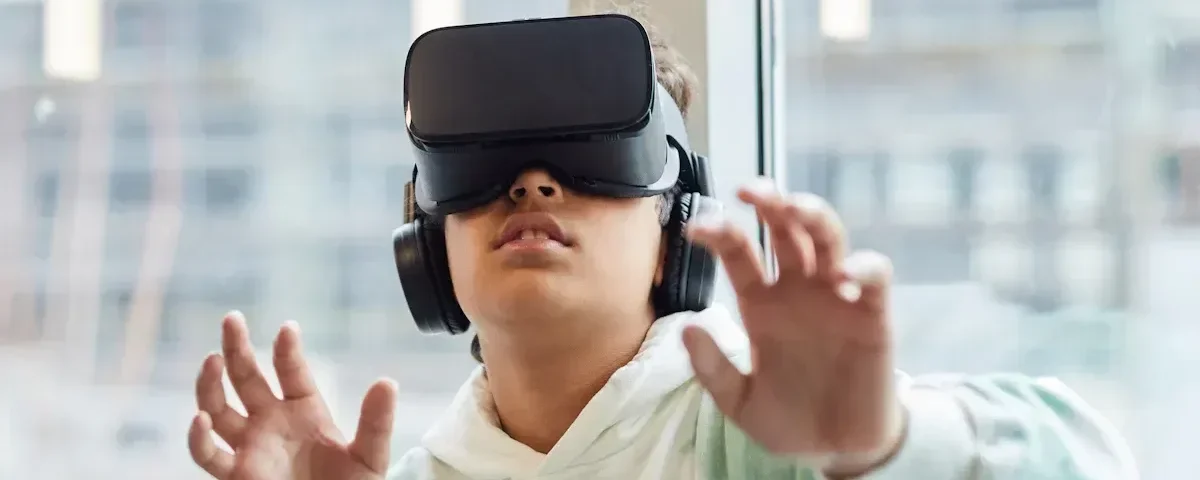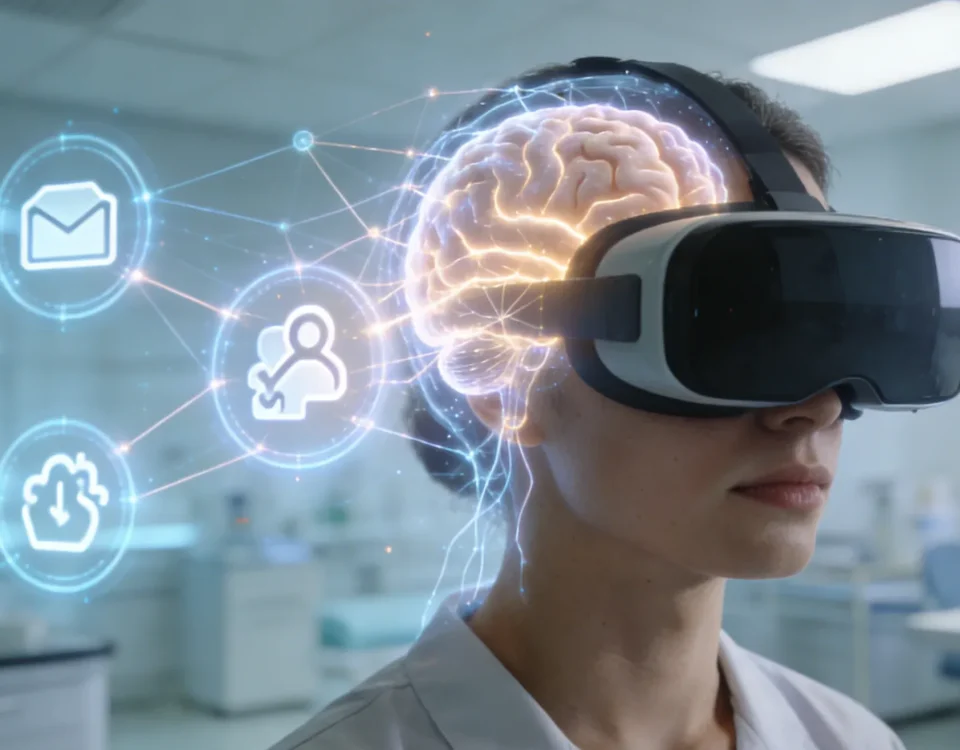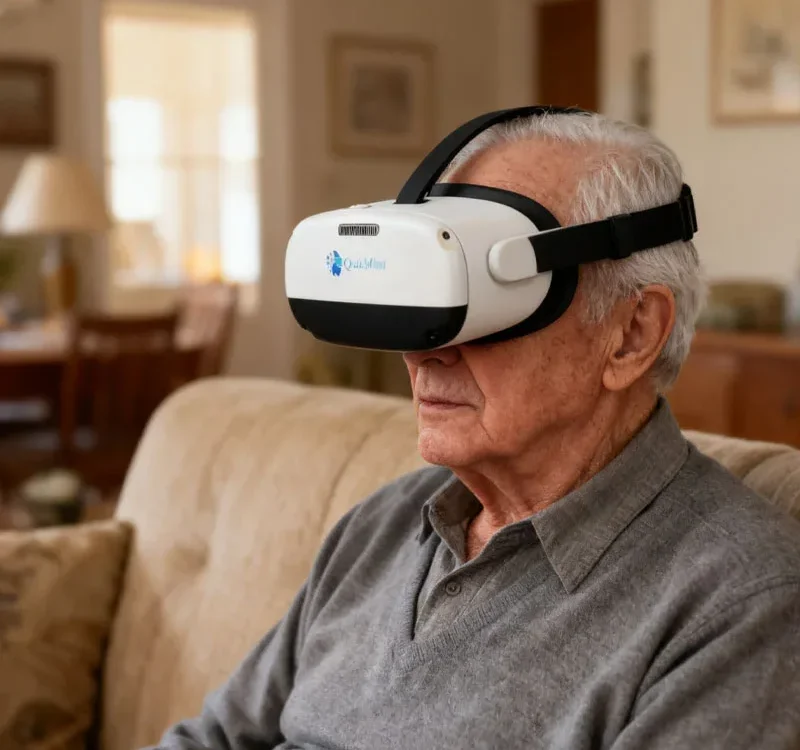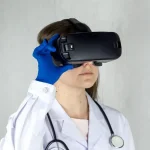
VR Cognitive Rehabilitation Rental
2025-10-28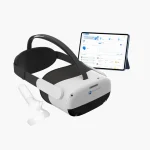
VR rehabilitation systems for Alzheimer’s disease rehabilitation
2025-11-10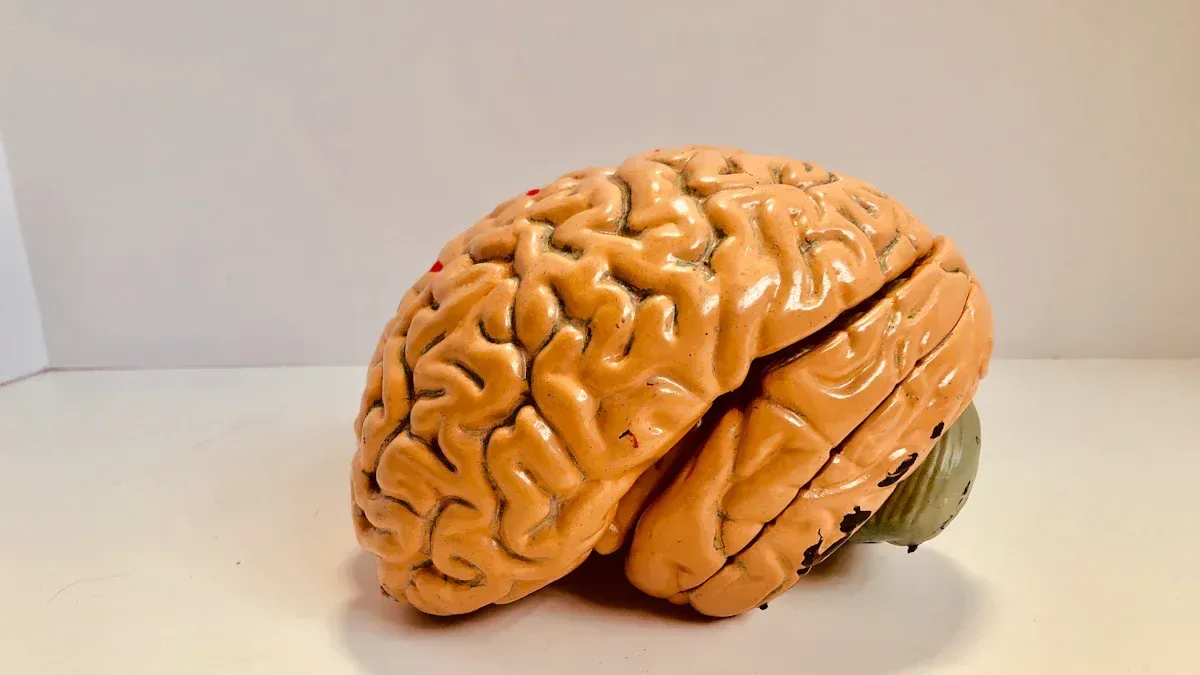
QuickMind® stands as a revolutionary, FDA-cleared system for VR cognitive assessment and rehabilitation. The platform delivers rapid, AI-powered cognitive screening and immersive, individualized therapy experiences. Advanced technologies, including eye-tracking and real-time data analysis, support clinically validated results. Users benefit from reliable progress tracking in both clinical and home environments.
Key Takeaways
- QuickMind® is an FDA-cleared VR system that offers fast and accurate cognitive assessments, making it a reliable choice for clinicians and patients.
- The platform uses advanced technologies like AI and eye-tracking to provide personalized therapy plans, enhancing user engagement and effectiveness.
- QuickMind® allows for both clinical and home use, ensuring continuous cognitive support and progress tracking for users.
- The Five-Minute Cognitive Test (FCT) provides quick results, helping detect cognitive impairments earlier than traditional methods.
- Interactive therapy experiences in QuickMind® motivate users while improving cognitive and physical abilities through engaging activities.
QuickMind® Overview

What Sets QuickMind® Apart
QuickMind® introduces a new standard in cognitive health technology. The system combines advanced virtual reality, artificial intelligence, and eye-tracking to deliver a unique experience for both assessment and rehabilitation. Unlike traditional tools, QuickMind® provides rapid, engaging, and highly accurate cognitive evaluations.
The following table highlights the main technological innovations that distinguish QuickMind® from other cognitive health systems:
| Innovation Type | Description |
|---|---|
| VR Technology | QuickMind® is a VR-based cognitive health system that is FDA-cleared for effective screening and rehabilitation. |
| AI Integration | It uses real-time AI adjustments to enhance cognitive assessments and provide personalized training plans. |
| Eye-Tracking Technology | The system employs eye-tracking to deliver 5-minute cognitive screenings with high consistency compared to traditional tools. |
| Data Visualization | QuickMind® offers comprehensive AI-powered reports that analyze cognitive domains and track user progress. |
| Mobile Accessibility | The system is mobile, allowing for quick assessments and remote adjustments to training plans. |
QuickMind® stands out by offering a VR cognitive assessment that is both immersive and efficient. The platform’s AI-driven approach ensures that each user receives a personalized training plan based on real-time data. Eye-tracking technology further enhances the accuracy of assessments, capturing subtle changes in cognitive function that might go unnoticed with standard methods. The mobile design allows clinicians and patients to access assessments and therapy sessions from various locations, supporting continuity of care.
FDA Clearance and Clinical Validation
QuickMind® has achieved FDA clearance, demonstrating its safety and effectiveness for cognitive health applications. Hospitals and physicians have validated the system, confirming that its cognitive assessment scores align closely with gold-standard tools such as the Montreal Cognitive Assessment (MoCA).
The table below compares QuickMind®’s AI-powered cognitive screening with traditional cognitive assessment methods:
| Aspect | AI-Powered Assessments | Traditional Methods |
|---|---|---|
| Speed | Faster data collection and analysis | Slower, manual processes |
| Accuracy | Higher precision in identifying cognitive changes | Less precise, subjective assessments |
| Early Detection | Identifies subtle changes earlier | Often detects changes at later stages |
| Standardization | Offers standardized administration | Variability in administration |
QuickMind® uses machine learning algorithms to analyze cognitive data. This approach allows the system to detect changes in cognitive function earlier than traditional methods. Computerized assessments provide standardized administration and objective data outputs, reducing the risk of human error. Clinicians and patients benefit from comprehensive reports that break down cognitive domains and visualize progress over time.
QuickMind® delivers a clinically validated, FDA-cleared solution that supports both early detection and ongoing management of cognitive health. Its innovative use of VR, AI, and eye-tracking sets a new benchmark for accuracy, speed, and user engagement in cognitive care.
VR Cognitive Assessment and Screening

5-Minute AI-Powered Testing
QuickMind® transforms the landscape of VR cognitive assessment by offering a rapid, AI-driven screening process. The system administers a Five-Minute Cognitive Test (FCT) that streamlines the evaluation of cognitive function. This test stands out for its speed and reliability, making it a preferred choice for both clinicians and patients.
- The Five-Minute Cognitive Test typically takes only 5-6 minutes to complete.
- Diagnostic performance surpasses that of the Mini-Mental State Examination (MMSE), with sensitivity at 80.6% and specificity at 84.11%.
- The FCT provides a quick and dependable method for detecting cognitive impairment.
QuickMind®’s AI-powered cognitive assessment demonstrates strong agreement with established gold-standard tools. The system achieves an overall percent agreement greater than 73%. Positive percent agreement with the Montreal Cognitive Assessment (MoCA) reaches 77.5%, while agreement with the Addenbrooke’s Cognitive Examination (ACE) is 81.4%. These results highlight the accuracy and consistency of QuickMind® in VR cognitive assessment.
Clinicians can rely on QuickMind® for fast, accurate, and standardized cognitive screening, reducing the time and subjectivity often associated with traditional methods.
Eye-Tracking and Real-Time Analysis
QuickMind® integrates advanced eye-tracking technology into its VR cognitive assessment platform. This feature records and analyzes eye movement trajectories in real time, providing valuable insights into cognitive abilities such as attention, memory, and executive function.
| Evidence Description | Key Features |
|---|---|
| Eye-tracking technology records and analyzes eye movement trajectories in real-time | Assesses cognitive abilities such as attention, memory, and execution, distinguishing between normal cognitive function, MCI, and dementia. |
| Predicts MOCA scores and generates personalized rehabilitation plans | Utilizes artificial intelligence to tailor cognitive rehabilitation training to individual needs. |
The combination of eye-tracking and AI enables QuickMind® to distinguish between normal cognitive function, mild cognitive impairment, and dementia. The system predicts MoCA scores and generates personalized rehabilitation plans based on real-time data. This approach ensures that each VR cognitive assessment is both engaging and highly precise.
Patients experience a more interactive and motivating assessment, while clinicians gain access to detailed, actionable data for ongoing care.
Personalized VR Rehabilitation
Interactive Therapy Experience
QuickMind® delivers a highly engaging and interactive therapy experience through its advanced VR platform. Users participate in immersive activities that challenge both cognitive and physical abilities. For example, tasks such as navigating a virtual grocery store or stepping over obstacles help improve decision-making and motor control in a safe, controlled environment. The system adapts therapy to each individual’s goals and progress, ensuring that every session remains relevant and motivating.
The following table outlines the core interactive features of QuickMind®’s VR rehabilitation:
| Component/Technology | Description |
|---|---|
| Augmented Feedback | Provides instant feedback to facilitate faster learning and improvement. |
| Motion Capture | Monitors movements for real-time corrections and encouragement. |
| Exergaming | Combines exercise with gaming to maintain motivation and activity. |
| Serious Games | Engaging activities designed to meet rehabilitation objectives. |
| Telerehabilitation | Enables remote connection with professionals for additional support. |
These features help rewire the brain with interactive exercises and maintain high levels of patient involvement. VR-based programs have proven effective for improving or maintaining cognitive functions. They also support re-learning daily living skills and are often preferred over traditional cognitive rehabilitation methods, especially for individuals with cognitive impairments.
Clinicians and patients report strong engagement with QuickMind®’s therapy sessions. According to recent data, 84% of clinicians and 51.8% of users overall utilize these interactive sessions, highlighting their widespread acceptance.
Progress Tracking and Data Visualization
QuickMind® offers robust progress tracking and data visualization tools. The system generates comprehensive reports that break down performance across cognitive domains, allowing clinicians to monitor improvements and adjust therapy plans as needed. Personalized interventions, tailored to emotional and motivational profiles, optimize recovery outcomes and enhance patient engagement.
Clinicians frequently use QuickMind®’s progress tracking features to inform therapy adjustments. For solution-focused therapies, assessments occur every session. In general practice, clinicians review progress every 4-6 sessions, ensuring that therapy remains responsive to each patient’s needs.
The integration of VR cognitive assessment with real-time data visualization supports a data-driven approach to rehabilitation. This ensures that both patients and clinicians can see measurable progress, fostering motivation and confidence throughout the recovery journey.
Who Benefits from QuickMind®
Target Users and Conditions
QuickMind® serves a broad spectrum of individuals who require cognitive assessment and rehabilitation. The system addresses the needs of elderly individuals, people with mild cognitive impairment, and patients diagnosed with dementia. These groups often face challenges in memory, attention, and executive function. QuickMind® provides targeted support for these cognitive domains.
Clinicians frequently recommend QuickMind® for patients at risk of neurodegenerative diseases, such as Alzheimer’s disease. The platform also assists individuals recovering from stroke or brain injury. Children with developmental disorders may benefit from the system’s adaptive training modules. QuickMind® adapts to each user’s cognitive profile, ensuring that therapy remains relevant and effective.
QuickMind® empowers healthcare professionals to deliver precise, individualized care for a wide range of cognitive conditions.
Clinic and Home Use Cases
QuickMind® offers flexible deployment in both clinical and home environments. In hospitals and outpatient clinics, clinicians use the enterprise version to conduct comprehensive assessments and deliver immersive therapy sessions. The dedicated hardware and display provide a controlled setting for accurate data collection and progress monitoring.
At home, patients and caregivers utilize the mobile version for ongoing rehabilitation. The system’s intuitive interface allows users to complete therapy sessions independently. Remote monitoring features enable clinicians to review performance metrics and adjust training plans as needed.
The following table highlights typical use cases for QuickMind®:
| Setting | Primary Users | Key Benefits |
|---|---|---|
| Clinic | Clinicians, Patients | Professional assessment, real-time data, supervised therapy |
| Home | Patients, Caregivers | Convenient access, continuity of care, remote progress tracking |
QuickMind® bridges the gap between clinical expertise and home-based care. The system ensures that users receive consistent, high-quality cognitive support wherever they are.
Features and Advantages
Mobile and Enterprise Solutions
QuickMind® offers both mobile and enterprise solutions, meeting the needs of diverse users in clinical and home settings. The mobile version provides flexibility for patients and caregivers, allowing therapy and assessment to continue outside traditional healthcare environments. The enterprise version equips clinicians with dedicated hardware and comprehensive VR capabilities for in-depth evaluation and rehabilitation.
The mobile platform stands out for its accessibility features. Users with visual, auditory, or cognitive challenges benefit from a range of supportive tools. The following table summarizes these features and their benefits:
| Feature | Benefit |
|---|---|
| Screen reader compatibility | Descriptive text labels help visually impaired users understand app functions. |
| Voice commands and audio assistance | Hands-free navigation and audio guides support users with limited mobility. |
| Text resizing and high-contrast | Adjustable text size and color contrast aid users with low vision. |
| Captioning and transcriptions | Captions for audio and video content assist users with hearing impairments. |
| Calm, easy-to-navigate interface | Reduces distractions for users with cognitive impairments. |
| Haptic feedback | Vibrations confirm actions for users with sensory difficulties. |
| Customizable reminders | Structured reminders support users needing routine and organization. |
| Mental health emergency resources | Quick access to support and calming exercises during crises. |
These features ensure that QuickMind® remains usable and effective for a wide range of individuals, regardless of their abilities.
Comparison to Other Cognitive Health Tools
QuickMind® distinguishes itself from other cognitive health tools through its integration of advanced technologies and user-centered design. Traditional cognitive assessments often rely on paper-based tests or basic digital platforms. These methods may lack engagement, adaptability, and real-time feedback.
QuickMind® leverages immersive VR, AI-driven analytics, and eye-tracking to deliver rapid, accurate, and engaging assessments. The system generates personalized training plans and tracks progress with detailed data visualization. Unlike many competitors, QuickMind® supports both clinical and home use, ensuring continuity of care.
QuickMind® sets a new benchmark in cognitive health by combining clinical accuracy, accessibility, and user engagement in one comprehensive platform.
QuickMind® delivers a unique, FDA-cleared solution for cognitive health. The system offers rapid assessment, personalized therapy, and broad accessibility. Healthcare professionals value its clinical validation, ease of use, and seamless workflow integration:
| Factor | Description |
|---|---|
| Clinical Validation | Technologies must undergo peer-reviewed studies to ensure comprehensive clinical evaluation. |
| Ease of Use | Technologies that are easy to use and require minimal training are more likely to be adopted. |
| Integration with Workflows | Solutions that fit seamlessly into existing workflows, such as EHRs, are preferred by clinicians. |
| Addressing Unmet Needs | Technologies must address pressing needs identified through direct clinical observation. |
Future developments include precision measurement, non-invasive assessments, and advanced reporting:
| Anticipated Development | Description |
|---|---|
| Precision Measurement | ViewMind is leading in precision measurement of ocular movement, which is crucial for assessing brain health. |
| Non-Invasive Assessments | Development of non-invasive tools to detect cognitive alterations early in neurological diseases. |
| Scalable Solutions | Creating affordable, non-invasive markers for brain health assessment. |
| Advanced Reporting | Generating detailed reports on cognitive conditions based on eye movement data analysis. |
| Pharmaceutical Applications | Enabling pre-screening for drug studies and monitoring treatment impacts on cognitive health. |
QuickMind® stands as an effective, engaging choice for cognitive care in both clinical and home environments.
FAQ
What is QuickMind® used for?
QuickMind® provides rapid cognitive screening and personalized rehabilitation. Clinicians use it to assess memory, attention, and executive function. Patients and caregivers rely on it for ongoing therapy and progress tracking.
Is QuickMind® safe for all ages?
QuickMind® holds FDA clearance for cognitive assessment and rehabilitation. Hospitals and physicians have validated its safety. The system suits elderly individuals, adults with cognitive impairment, and children with developmental disorders.
How does QuickMind® use artificial intelligence?
QuickMind® leverages AI to analyze cognitive data in real time. The system generates personalized training plans and delivers comprehensive reports. AI ensures accurate assessment and tailored therapy for each user.
Can QuickMind® be used at home?
QuickMind® offers a mobile version for home use. Patients and caregivers access therapy sessions and progress tracking remotely. Clinicians monitor performance and adjust plans without requiring in-person visits.
What makes QuickMind® different from other cognitive health tools?
QuickMind® integrates VR, AI, and eye-tracking for immersive assessment and therapy. The platform delivers rapid, accurate results and supports both clinical and home environments. Users benefit from engaging experiences and detailed progress visualization.


